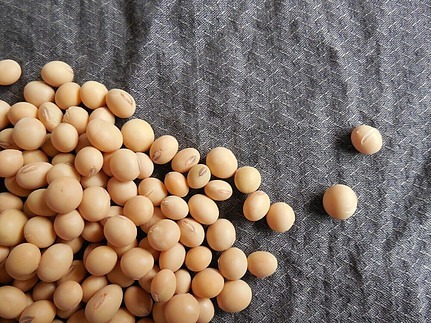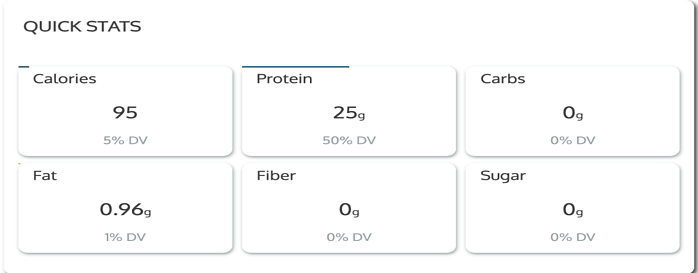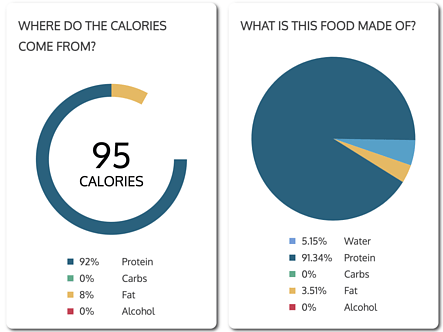Yo,
We meet again my friend, I knew we would. Thanks for your time and let’s answer your question.
Today’s topic of the day; what is soy protein powder?
To give you a quick answer: soy protein powder is a protein powder that is sourced from soybeans. Soybeans are legumes and are high in fibre.
It is a plant-based protein powder, so it is suitable for vegans and vegetarians.
Down to what soy itself is, all the way to comparing the protein powder with whey protein powder, we’ll be doing it all.
Soy protein powder may not be as common as your standard whey protein powder, or whey isolate, but it is certainly used by many people. You may also be thinking of using it as well. Whatever the reason you are here for, we hope to provide you with value.
Before we begin, I understand that you’re here to expand your knowledge on soy protein powder, or if you’re looking for a potential peace of information.
However.
Have you asked yourself if you should be taking protein powder in the first place? I implore you to consider this.
Alright, let’s get into it now.

An Introduction to Soy Protein Powder
As previously mentioned, soy protein powder is a protein powder option that is derived from soybeans.
To produce this supplement, the outer shells of the soybeans are removed and the oil from the soybeans are extracted to to attain defatted soy flour. The flour is mixed with water and the protein is separated from the liquid mixture. Following this, the protein precipitate is washed, neutralised, dried and ground to get your final product.
That’s a summarised version of the process though.
Funnily enough, among all the plant-based protein powders, this has actually been considered as the most popular, with the highest industrial production.
The Nutritional Breakdown of Soy Protein Powder
Let’s get into the meat of the supplement now.
It’s a protein powder, so it’s bound to be high in protein right?
Well, let’s look at these macros now.
In a 28g serving, the macros are as follows:

These macros are pretty similar to your other protein powder options on the market, so you’re not missing out on anything.
The protein is high, fat is quite low and the carbs are at 0g.
Let’s now move into your standard ingredients.
If you’re getting a soy protein powder that is flavourless, almost all of the options on the market will be 100% soy protein isolate. That is, it’s the only ingredient.
If you are choosing a soy protein powder that has a particular flavour, you’ll have more than one ingredient. For example, in Myprotein’s salted caramel flavour for soy protein powder there are four ingredients.
These include soy protein isolate, flavourings, Salt, Apple Extract and Sweetener(Sucralose).
So we’ve gone from one ingredient (in the unflavoured version) to four ingredients (in the flavoured version).
Benefits to Allergies: What you get
Benefits
Muscle maintenance and growth:
Protein is the building block for muscle growth. You need to be eating a high-protein diet.
In order to see muscle growth (among other things, but we’ll just be focusing on protein for the moment). If you’re not eating enough protein, you’re not providing your body with what it needs to build more muscle.
This is where soy protein powder comes in. Soy protein powder, with it’s high protein amount, can be an addition to your diet, to boost your protein intake in order to ensure that you’re eating a desirable amount.
Low protein = low muscle growth. Basically none to be honest.
Now remember, if you need to eat 150g of protein to see muscle growth, but you’re eating only 60g, then the 25g protein from the soy protein powder (of course you can have more if you’d like) will not do much.
You’ll then only be eating 85g, which is just over half of what you actually require.
If this is you, then don’t be blaming soy protein powder for your lack of growth.
Protein powder, let alone soy protein powder, is a supplement, which means it should be an addition to what you’re already eating. In order for you to actually see growth, you need to be eating a decent amount of protein already for it to have a positive effect. Let’s bring this back to our example.
If you need to eat 150g, but you’re eating 125g, certainly the added 25g of protein from the soy protein powder will have a much greater effect. You’re already eating a decent amount so the supplement will be able to do it’s magic.
So yes, it can help you build muscle.
Similarly for your maintenance, if you need to eat 130g to maintain, but you’re eating 105g, the added 25g of protein will certainly help you to maintain.
I’m sure you get the idea now.
Fat loss:
Bring on the abs.
This protein powder can help you to lose fat.
When you consume protein, it helps to release the hormones that make you full (leptin) and reduces the production of the hormone that makes you feel hungry (ghrelin).
To lose fat, you need to be in a caloric deficit and to be eating a high-protein diet. You need to ensure that you’re eating fewer calories than your body needs to maintain its weight.
Back to the soy protein powder.
As it’s high in protein, by having it you reduce the chances of craving and snacking on high-calorie foods. This will ensure that you’re staying in your caloric deficit and losing those kg’s of fat.
Furthermore, soy protein powder is low in calories as well, so it’s not like you’re swapping your high-calorie snacks for another high-calorie option.
This supplement will help you greatly.
Heart Health:
Soy protein has also been correlated to positive heart health. It can help lower your bad cholesterol levels and could assist in reducing the risk of heart disease. Additionally, soy protein can raise your good cholesterol levels.
Allergies and Warnings
Soy:
Of course, if you have a soy allergy, then this protein powder option would not be ideal for you, unfortunately.
Hormonal Effects:
Soy contains compounds that are called phytoestrogens, specifically isoflavones, which can actually mimic the effect of estrogen in your body. Some studies have investigated the effect of soy consumption on testosterone and shown how hormonal levels can be affected.
This is just something to be mindful of.
Pitch Battle: How Does Soy Protein Stack up Against Whey
Let’s now compare soy protein powder to whey protein isolate. This is to provide another perspective for you. Check this out
| 28g serving | Soy | Whey |
|---|---|---|
| Calories | 95 | 108 |
| Protein (g) | 25 | 24.3 |
| Fat (g) | 0.96 | 0.5 |
| Carbs (g) | 0 | 1.2 |
| Sugar (g) | 0 | 1.2 (depends on flavour. These stats are from a flavoured option) |
| Can use for Bulk | Certainly | Absolutely |
| Can use for cut | Yes | Definitely |
| Vitamins and Minerals | Calcium Iron Magnesium Zinc Potassium | B Vitamins Calcium Phosphorus Magnesium |
| Complete protein | Yes | Yes |
| Protein Weight | 90-95% | 90-95% |
What stands out is that the protein weight is the same, with them both being complete protein sources and usable for cutting and bulking.
However, whey protein isolate has B vitamins, where soy does not.
Soy has more fat, whilst whey has more carbs and sugars. .
Overall, the macros are very similar and you’re not missing out on much by using a soy protein powder.
Usage and Options
So how can you use this for desired results.
Dependency
The first is not creating a dependency and reliance on it. The moment you depend on this supplement to solve all of your problems, you lose.
Yes, you lose.
You need to remember that this is a supplement designed to be an addition to what you’re already consuming. It’s a top off. You need to have a good diet, consuming a variety of vitamins, minerals and overall healthy foods.
My friend, ensure that you’re eating an already good diet with a decent amount of protein so that you can experience the benefits
Finding what works
Find a way you can use this regularly. Find recipes.
It could be protein shakes, it could be pancakes, it could be smoothies.
Whatever it may be, finding a recipe that you enjoy, can make quickly and use regularly will ensure you’re always able to get in this supplement.
An easy way is protein shakes with water/milk. Two ingredients, takes 4 seconds and can be taken at any time.
Another is placing a scoop of protein powder in your oats. It boosts the protein intake by a lot, makes you more full and is very convenient.
Taking it slow
Even if you use this supplement correctly, the results won’t be instant. You have to remember that results come over time, not instantly. Trust the process, don’t rely on the product and have fun along the way.
Wrapping Up
There we have it, my friend.
We went through the nutrition of this product, its benefits, and potential allergies, compared it to whey and went through some usage and options.
I’m then going to ask you a question before we depart for today;
“How beneficial would soy protein powder actually be to me?”
Thank you for your time today, I hope we were able to provide you with some value today.
Until we meet again.

